What’s Next for the Global Plastics Treaty? INC-1 Digest
The first Intergovernmental Negotiating Committee (INC-1) convened in Punta Del Este, Uruguay on November 28th to December 3rd, 2022. 170 governments joined stakeholders from businesses, NGOs, and the informal sector with the goal of ending plastic waste in the environment.
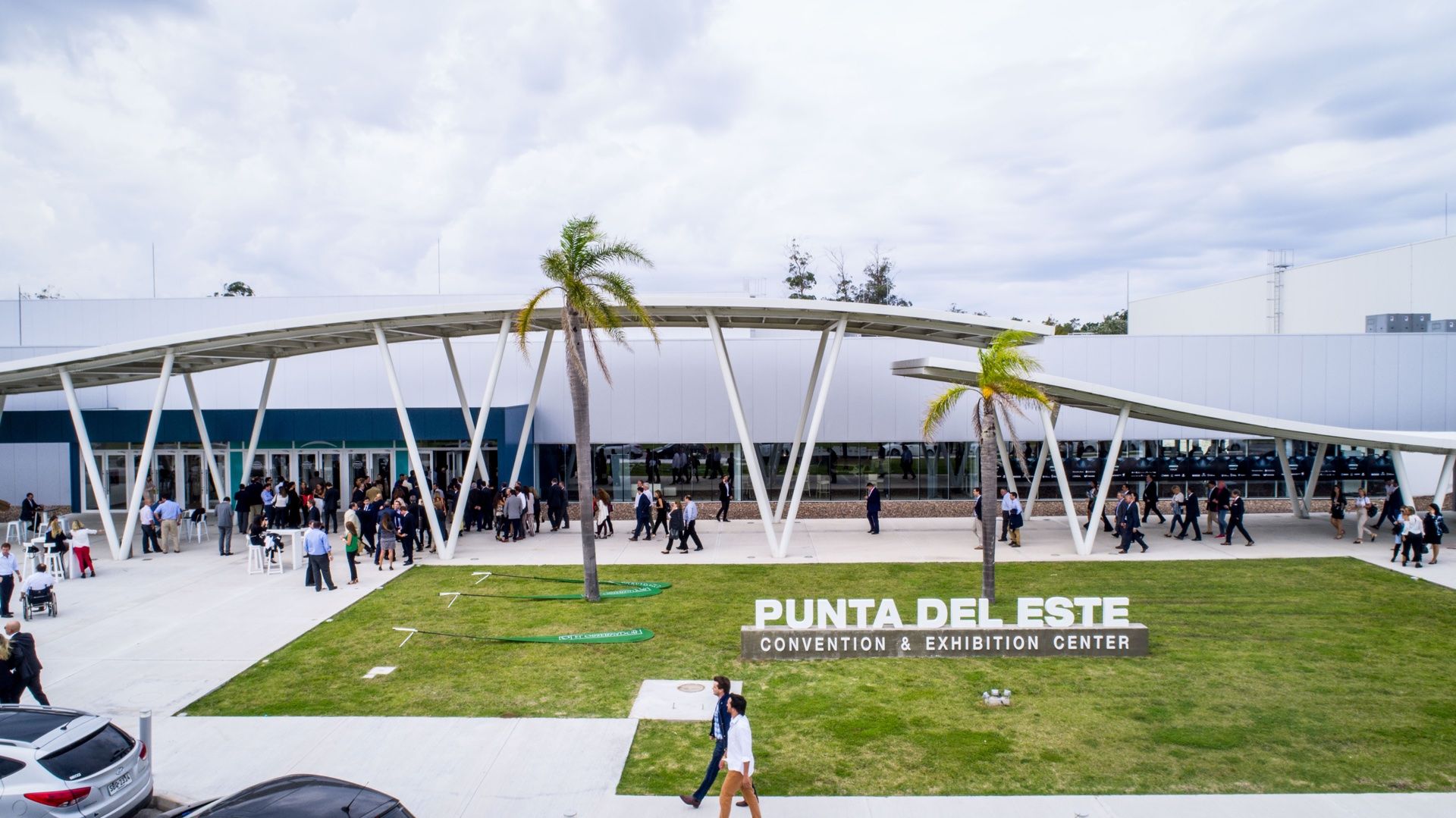
What’s next? INC-1 Digest
On December 12th 2022 over 100 stakeholders across the globe participated in the Ocean Plastics Leadership Network (OPLN) Global Plastics Treaty Dialogues INC-1 Digest a capacity building program providing a debrief with a mission to drive engagement into the UN Plastics Treaty.
Missed it? Watch INC-1 Digest recording here
INC-1 Chair Gustavo Meza-Cuadra opened OPLN’s Digest with reflections on the INC-1.
“The INC-1 has been unique in several ways,” said Meza-Cuadra. “As chair, I look forward to encouraging broad and inclusive participation in this process to ensure that our negotiations remain transparent, inclusive, and informed by experts from all sectors. I want to reiterate that this will not be an easy task, but the right thing to do is not easy to implement. To accomplish our mandate, we must remain patient and committed to our goals, and not lose sight of our overall objective: Ending plastic pollution.”
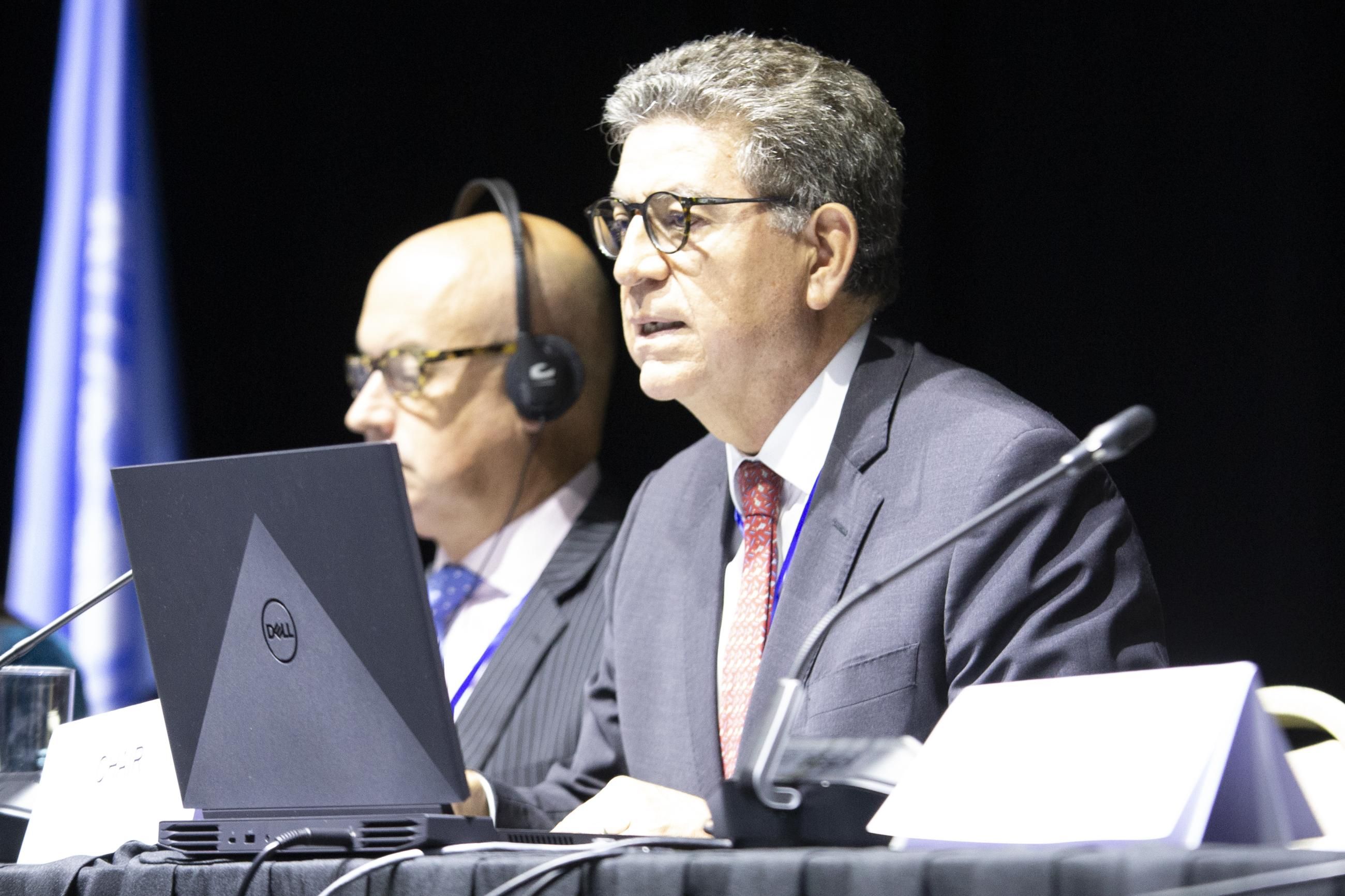
Gustavo Meza-Cuadra, INC Chair (Peru) 28 November 2022 from Earth Negotiations Bulletin a division of the International Institute for Sustainable Development (IISD)
“We [UNEP] wish to thank everyone for their contributions at INC1,” said Brenda Koekoek, UNEP Programme Manager, Circle of Excellence on Plastics Pollution. “I really look to you as stakeholders and governments that we have a really great opportunity here to move forward and make a difference, and we really hope you can use this momentum that has been generated over the last year … to come up with an ambitious result as we move forward.”
Key Takeaways: Stakeholders share insights on INC-1 at Digest
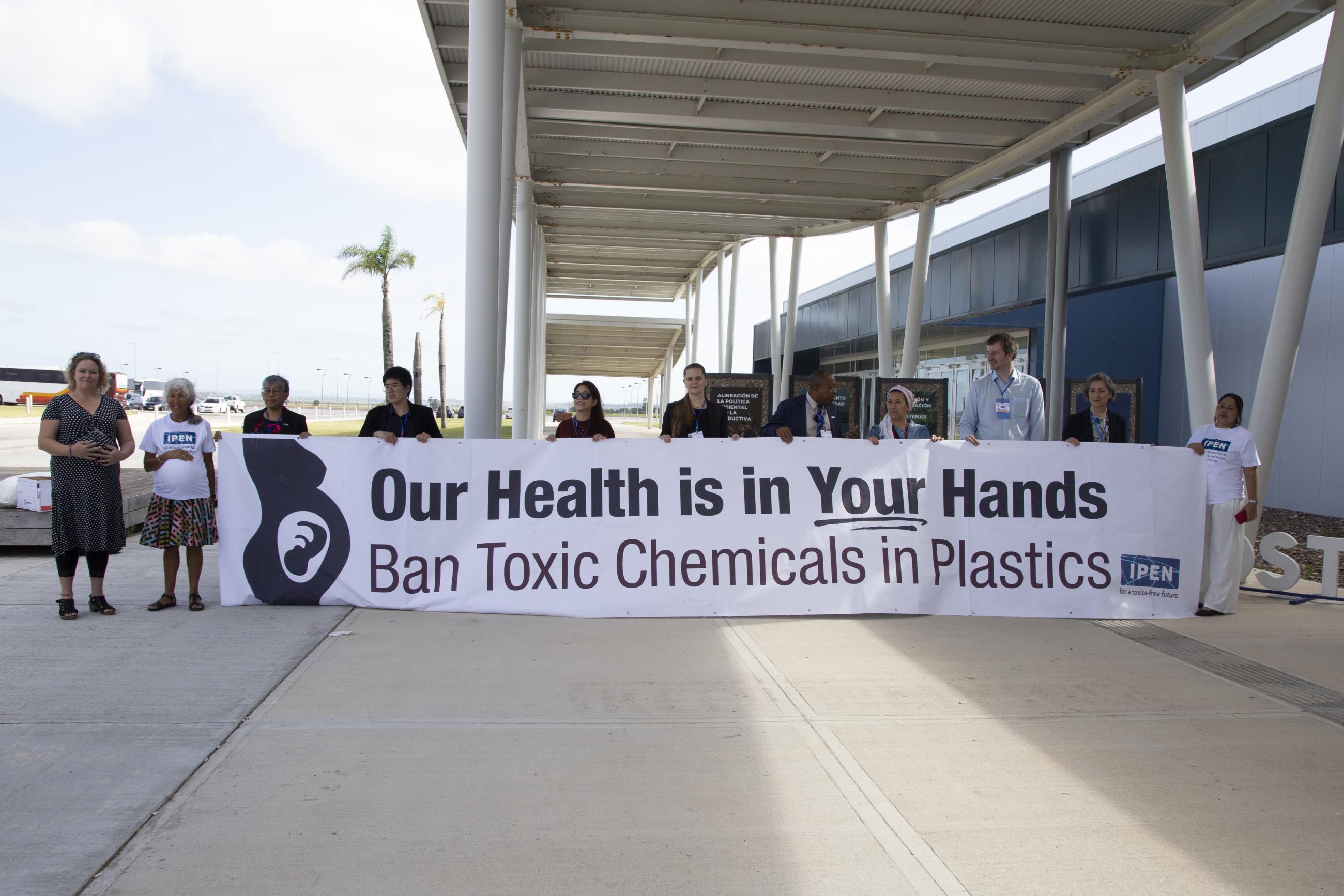
Around Punta del Este Convention and Exhibition Centre 28 November
Narrative Shift
The narrative has shifted dramatically since the broad initial UNEA mandate in March. As interventions evolved at INC-1, the narrative began to encompass health, human rights, and fossil fuels. New member states have also joined the High Ambition Coalition, as well as new constellations of stakeholder groups becoming more engaged in the plastics space. It’s clear, said Christina Dixon with the Environmental Investigation Agency, that stakeholders are waking up.
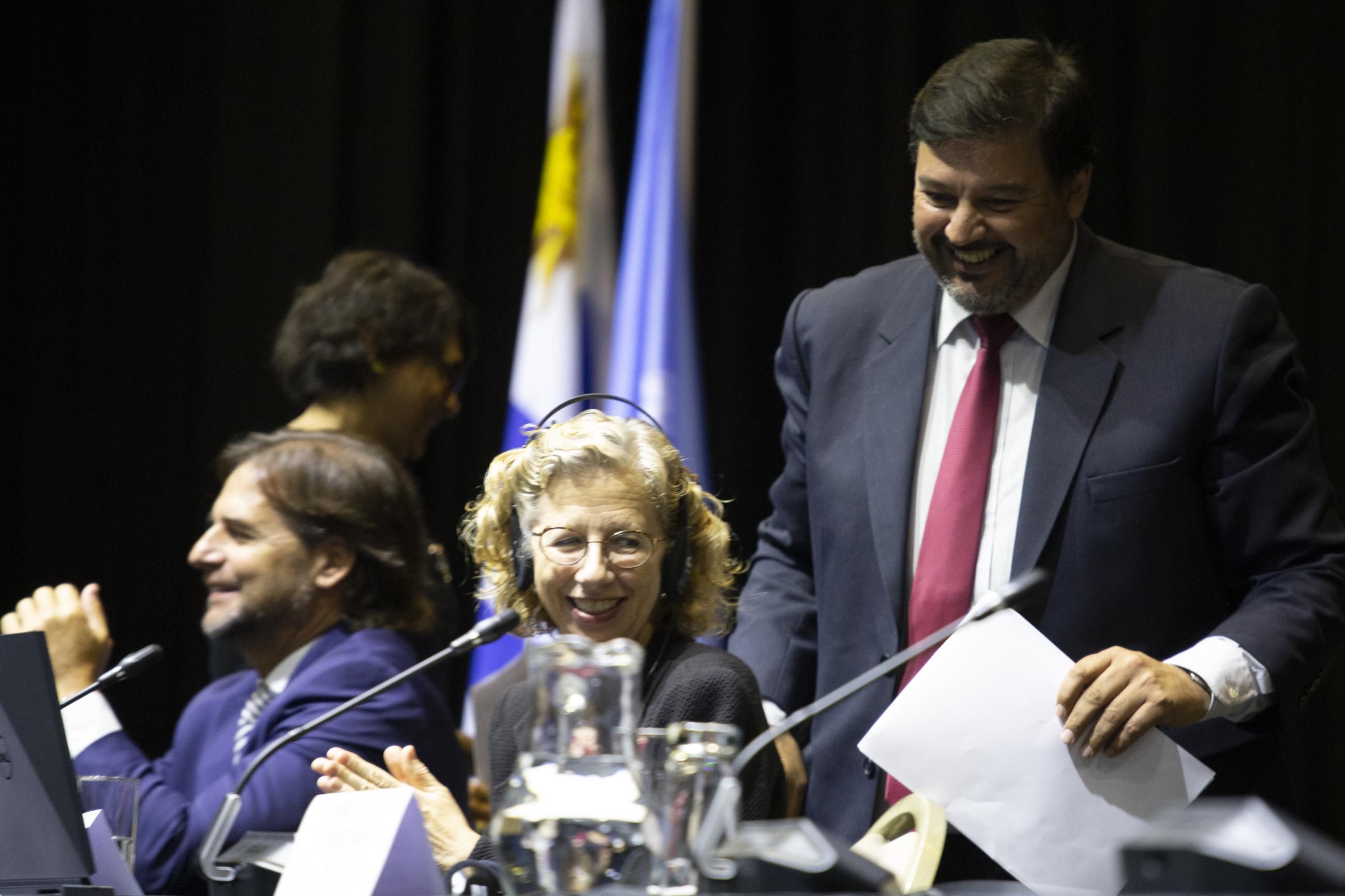
Luis Lacalle Pou, President of Uruguay; Inger Andersen, Executive Director, UNEP; and Adrián Peña, Minister of Environment, Uruguay|28 November 2022
A New Mandate
One of the primary outcomes of INC-1 was a mandate requiring the Secretariat develop a document outlining proposed elements for a final agreement ahead of INC-2. The document will be influenced by feedback received at the INC-1 as well as additional feedback collected from open submissions from observer individuals and states.
The submission deadline for written submissions from stakeholders is 13 January 2023
The deadline for written submissions from Members of the Committee is 10 February 2023.
All written submissions should be sent to unep-incplastic.secretariat@un.org by the deadlines. A template for written submissions is available. All submissions received from Members of the Committee and stakeholders will be made available on the INC-2 webpage.
For questions regarding the written submissions, please contact the INC secretariat by email at unep-incplastic.secretariat@un.org.
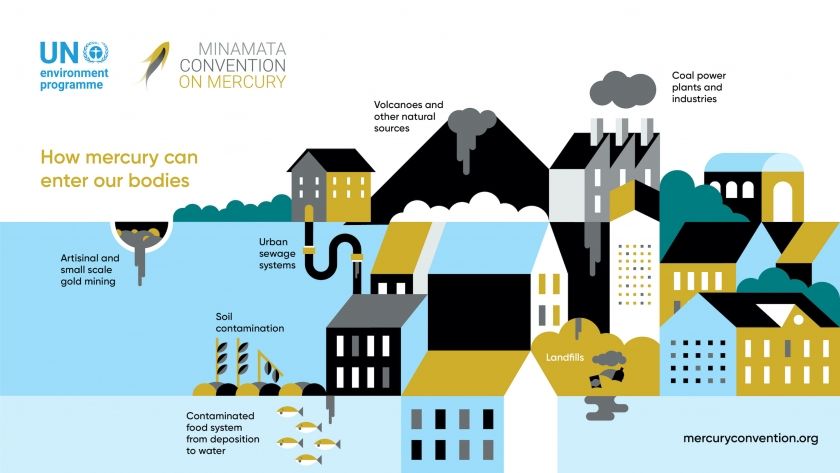
The Minamata Convention on Mercury is an international treaty designed to protect human health and the environment from anthropogenic emissions and releases of mercury and mercury compounds.
Treaty scope, objective, and structure
INC-1 produced substantive conversations on the scope of an agreement, objectives, and structures for moving forward. Proposed structures included a framework convention similar to the Paris Agreement. Many member states, however, leaned toward a specific convention similar to the Minamata Convention on Mercury.
Two work streams will guide the treaty process moving forward: Substantive elements (objectives, scope, core obligations, and control measures) and implementation elements (means, financing, institutional arrangements, progress assessment, and stakeholder engagement). The UK Department for Environment, Food, and Rural Affairs (Defra) believes future discussions will center on national action plans, harmonisation of definitions and standards, elimination of unnecessary plastics products, sustainable plastic consumption and production, and a just transition for impacted formal and informal waste sector. Defra also understands the importance of hearing from stakeholders about what measures they want to see in the treaty and that different countries may require different approaches.
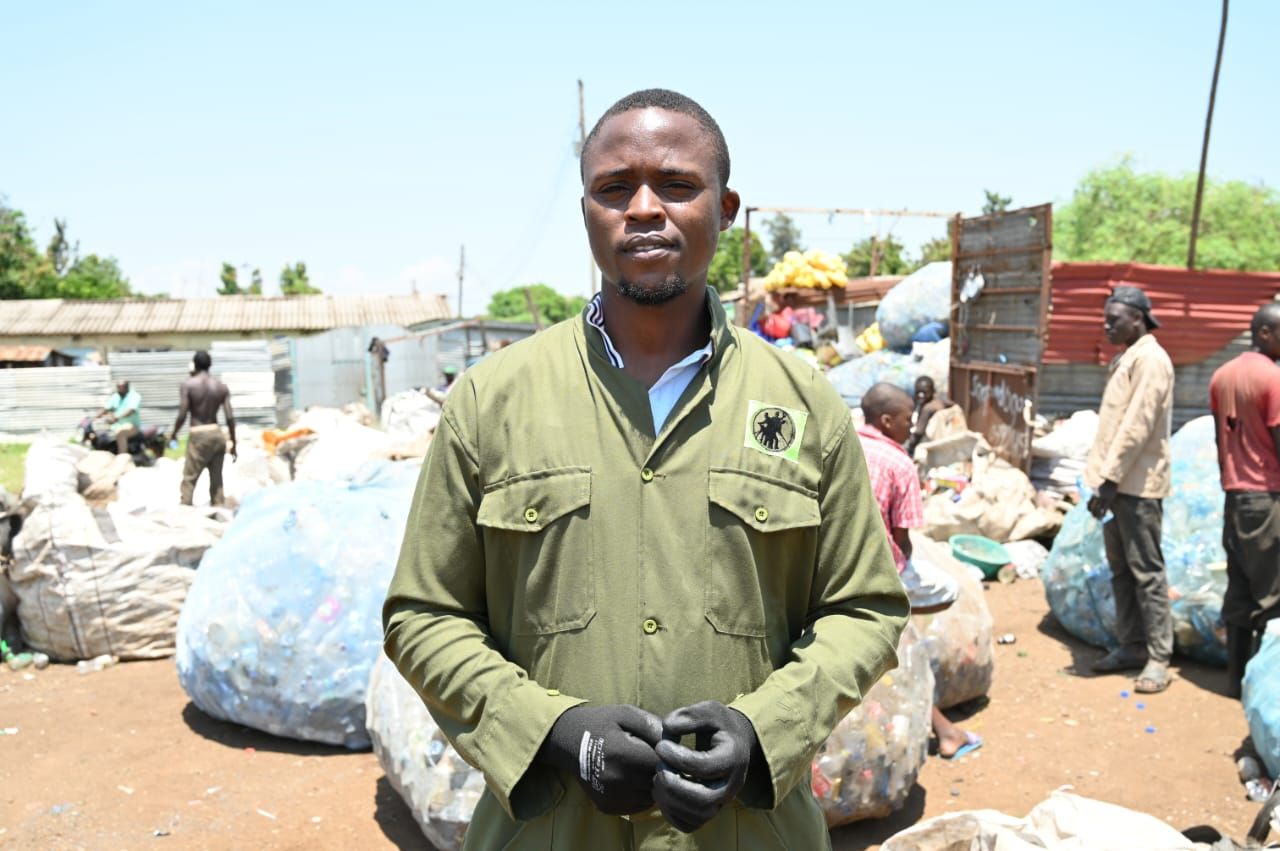
John Chweya, President of Kenya Waste Pickers Association
A just transition
Oliver Boachie, a senior environmental advisor in Ghana, highlighted the need for adequate and sustainable funding for Africa and other developing regions, as well as a free and open pipeline of research and knowledge-sharing to ensure each nation can meet its end of the treaty while protecting its vulnerable citizens and economies.
Like the climate crisis, a just transition is also needed in the transition away from the linear plastic economy.
“Plastics are a major problem, and waste pickers are at the forefront of this war,” said John Chweya, President of Kenya Waste Pickers Association.
Universal social protections are required to improve waste picker circumstances, but forcing formalization isn’t the answer, said Chweya. The informal sector is a lifeline for many at-risk and marginalized communities lacking opportunities in the formal sector, so keeping the informal waste sector alive—albeit with social bumper lanes in place—must be a key consideration in the plastics treaty.
“It is unethical to say ‘We are doing away with informal work,’” Chweya said. “Rather, we should say ‘We are going to provide opportunities for advancement in the value chain toward more formal and decent work.’”

Business support for a treaty grows
“Voluntary commitments are tools of the past, and regulation is the pathway to use for the future,” Said Jodie Roussell with Nestlé. “We want to move into a space that actually enables business to support the government as a partner in solving these problems. Top-down is pro business, pro economic inclusion … We need government leadership, and with that leadership, business can deliver solutions.”
Business support for the treaty is growing rapidly, with hundreds of applicants waiting to get on the Business Coalition for a Global Plastics Treaty. Businesses are rejecting voluntary measures, as they lead to high compliance costs and limited economies of scale as businesses navigate wildly differing policy requirements between countries. Now, businesses want a standard global policy that they can hang their hat on, manifesting in broad business support for extended producer responsibility (EPR), advancing recycling infrastructure, and sharing financial responsibilities.
Key Challenges
Progress can’t be made without setbacks, and INC-1 had its fair share. As a nation-led effort, the treaty relies on individual member states to listen to and digest the diverse voices of constituent stakeholders and integrate them into treaty negotiations. Member states and individuals requested revisions for how stakeholder perspectives are equitably and practically integrated into the negotiations. To this end, states agreed to allow stakeholder recommendations to be submitted between each INC.
Countries differed in opinion on whether the treaty should be bottom-up (nationally determined) or top-down (legally-binding requirements set on the global level). Nations also differed on whether the treaty process should be governed by voting or consensus. The INC Bureau—made up of countries guiding the procedure of negotiations—was also disputed. Lastly, UNEP only funded one delegate for each developing nation at INC-1, resulting in lack of representation among parallel working groups.
In addition to disagreement over top-down vs bottom-up approaches, there’s significant controversy between upstream, midstream, and downstream stakeholders over virgin plastic reduction, bans and production caps, plastic alternatives, and more.
“There is no such thing as a perfect model,” said Luis Vayas Valdivieso, Vice-minister of Foreign Affairs of Ecuador. “But we have to ensure consistency in our mandate.”
He pointed to the underwhelming results of the Paris Agreement’s nationally determined contributions (NDCs) in staving off climate change, citing the failure as proof that a legally binding instrument is needed to head off the plastics crisis.
“We need global commitments and global agreements for global problems,” said Valdivieso. “National or regional agreements are not enough.”
INC-2 will be held in Paris with a tentative date of May 22, 2023. Draft text of an agreement is not expected before INC-3 in November of next year.
Thank you to our supporting partner SAP for making this INC-1 Digest possible.
Message from SAP - Supporting Partner
The UN Plastics Treaty represents a unique opportunity to mobilize world leaders, businesses, and communities around a common goal and action plan to bring plastic use within planetary boundaries and eliminate the plastic pollution wreaking havoc our planet.
As the provider of technology systems underpinning 88% of the world’s commerce, SAP is committed to delivering the digital solutions and innovations needed to enable the goals of the treaty at scale.
SAP is a long-term partner to the Ocean Plastics Leadership Network and has greatly benefited from learning, collaborating, and co-innovating on ideas within the Network. As a result, our approach to developing technical solutions to advance the circular economy also focuses on ensuring businesses are ready to take on the challenges and opportunities that such a landmark treaty will represent. SAP Responsible Design and Production will help businesses navigate new regulations, standardise the approach to material measurement, support design processes that enable innovation and unlock solutions that will be sustainable for the long term.
We look forward to continuing our partnership and doing our part to see that plastic never becomes waste or pollution, and the value of products and materials is retained in the economy.